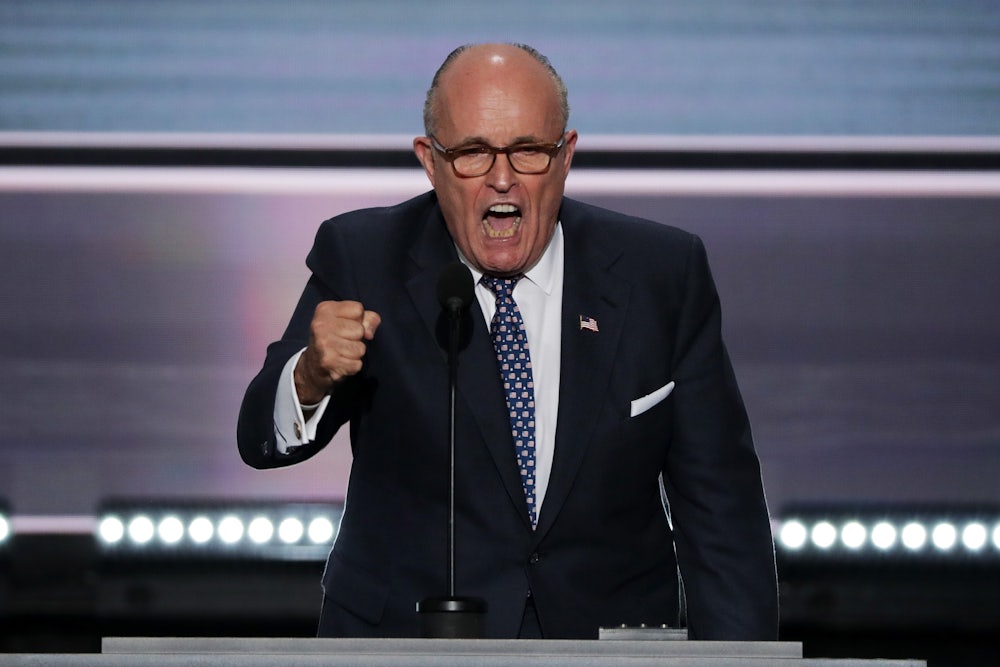On the first night of the Republican National Convention, Rudy Giuliani laid down the apocalyptic stakes of the the contest between Donald Trump and Hillary Clinton: “There’s no next election. This is it. There’s no time left for us to revive our great country.” The former mayor of New York City was echoing Trump at his most apocalyptic with the suggestion that the country faced a choice between life and death, that the very election of Clinton would spell doom.
Giuliani earned the most enthusiastic response from the Republican crowd of the evening because he made the message of impending death the most explicit of anyone speaking. But he was only the loudest ranter of the evening; otherwise his message wasn’t unique. One way or another, almost all the speakers came back to the matter of death.
There were no less than five parents on stage Monday evening in Cleveland who spoke about dead children: Pat Smith, whose son died in Benghazi, said, “I blame Hillary Clinton personally for the death of my son. Personally.” The mother of a dead Navy Seal and three parents whose children were killed by undocumented immigrants also spoke. And there was an extended speech by survivors of the Benghazi attack. All these witnesses and relatives of the dead, each with their personal grief and horror stories, gave the evening a morbid feel.
It’s no accident that the evening was one long memento mori, a reminder of death. Citing psychological studies, John Judis persuasively argued in Vox that being reminded of death makes people more likely to support order-promising right-wing leaders:
In October 2003, the researchers began testing whether George W. Bush’s appeal stemmed in part from mortality fears awakened by 9/11. They had two groups of Rutgers undergraduates read an essay expressing a “highly favorable opinion of the measures taken with regards to 9/11 and the Iraqi conflict.” Those who did the mortality exercises judged the statement favorably; those who didn’t did not. In late September 2004, the team gathered together undergraduates to see whether mortality reminders affected their decision to support Bush over Democratic challenger John Kerry in the upcoming election. Just as undergraduate opinion had opposed the war, it favored Kerry, and the group that did not do the mortality exercise chose Kerry by four to one. But the students who did the exercise favored Bush by more than two to one.
This fear of death played into the other major theme of the evening, the need to punish Clinton. “Lock her up,” the crowd repeatedly cried, and some of the speakers, notably Lt. Gen. Michael Flynn, echoed this chant on stage. For the violence of Benghazi or even the murders committed by undocumented immigrants weren’t portrayed as being done simply by evil foreigners; they were aided and abetted by internal betrayers, chief among them Clinton.
The cry of “lock her up” is not normal American politics. Unless a politician has committed a serious crime, like Dennis Hastert did, there usually aren’t calls for them to be jailed. Indeed, criminalizing political differences is a grave threat to the very legitimacy of the democratic process. That calls for Clinton to be jailed are now part of the normal rhetoric heard from the convention floor, and even the stage, is a testament to the radicalization of the Republican Party. The GOP has become an extremist party in ways that go beyond Trump as the nominee. He’s the symptom of this process as much as the cause.
